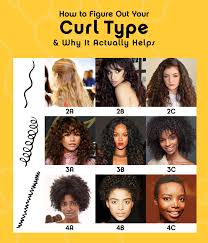Curly hair requires special care due to its unique texture and structure. A well-formulated curly hair conditioner can be a game-changer, but like any product, it comes with its own set of pros and cons. Below is a detailed breakdown of the advantages and disadvantages of using curly hair conditioners in a tabular format.
Advantages and Disadvantages of Curly Hair Conditioner
| Aspect | Advantages | Disadvantages |
|---|---|---|
| Moisturizing Benefits | Provides intense hydration to combat dryness and frizz, keeping curls soft and manageable. | Over-moisturizing can weigh down fine curls, leading to a limp appearance. |
| Curl Definition | Enhances natural curl patterns, making them more defined and bouncy. | Results may vary; some products may not work for all curl types. |
| Frizz Control | Helps tame frizz and flyaways, especially in humid conditions. | Effectiveness might reduce in extreme humidity or without complementary styling products. |
| Ingredient Quality | Often contains natural oils and butters (e.g., shea butter, coconut oil) beneficial for curls. | Some high-quality options may be expensive and out of reach for budget-conscious consumers. |
| Free of Harsh Chemicals | Many are free from sulfates, silicones, and parabens, reducing buildup and damage. | “Clean” formulations may have a shorter shelf life or a less luxurious feel compared to regular conditioners. |
| Versatility | Suitable for various curly hair routines, including co-washing and leave-in applications. | Not all products are suitable for every curl type (e.g., 2A vs. 4C curls). |
| Scalp Health | Can improve scalp hydration and reduce itchiness caused by dryness. | Overuse may lead to greasy scalp buildup if not rinsed properly. |
| Ease of Styling | Prepares hair for easier detangling and styling, reducing breakage. | Might require additional styling products for optimal results, adding to the routine’s complexity. |
| Custom Formulas | Available in specialized formulas targeting specific curl needs (e.g., protein vs. moisture). | Experimenting to find the right formula can be time-consuming and expensive. |
| Eco-Friendly Options | Many brands focus on sustainability with biodegradable packaging and cruelty-free formulas. | Eco-friendly options can be pricier and harder to find in local stores. |
Curly hair conditioners are essential for maintaining healthy, defined curls, but it’s important to choose the right product for your specific hair type and needs. By weighing the advantages and disadvantages, you can make an informed decision to optimize your curly hair care routine.
When shopping for curly hair conditioners, always consider factors like ingredients, curl type compatibility, and your budget. Investing in a good-quality product can make a significant difference in the look and feel of your curls.
Frequently Asked Questions (FAQs)
1. Can I use a normal conditioner on curly hair?
Yes, but normal conditioners often lack the deep moisturizing and curl-enhancing properties needed for curly hair. For best results, opt for a conditioner specifically formulated for curls.
2. How often should I use a curly hair conditioner?
It depends on your hair type and routine. Typically, you can use a curly hair conditioner every wash day (2-3 times a week) or as needed for co-washing.
3. What ingredients should I look for in a curly hair conditioner?
Look for natural oils (e.g., coconut oil, argan oil), butters (e.g., shea butter), and humectants (e.g., glycerin, aloe vera) to provide hydration and enhance curl definition. Avoid sulfates and silicones if possible.
4. Can a curly hair conditioner cause buildup?
Yes, if overused or not rinsed thoroughly. To prevent buildup, use a clarifying shampoo occasionally and avoid heavy products if your hair is fine.
5. What’s the difference between a leave-in conditioner and a rinse-out conditioner?
- Leave-in Conditioner: Stays in the hair after washing to provide long-lasting moisture and frizz control.
- Rinse-out Conditioner: Used after shampooing and rinsed out to detangle and hydrate hair temporarily.
6. Is curly hair conditioner suitable for all curl types?
Most are versatile, but some may be better suited for specific curl types (e.g., loose waves vs. tight coils). Check product labels for recommendations.




